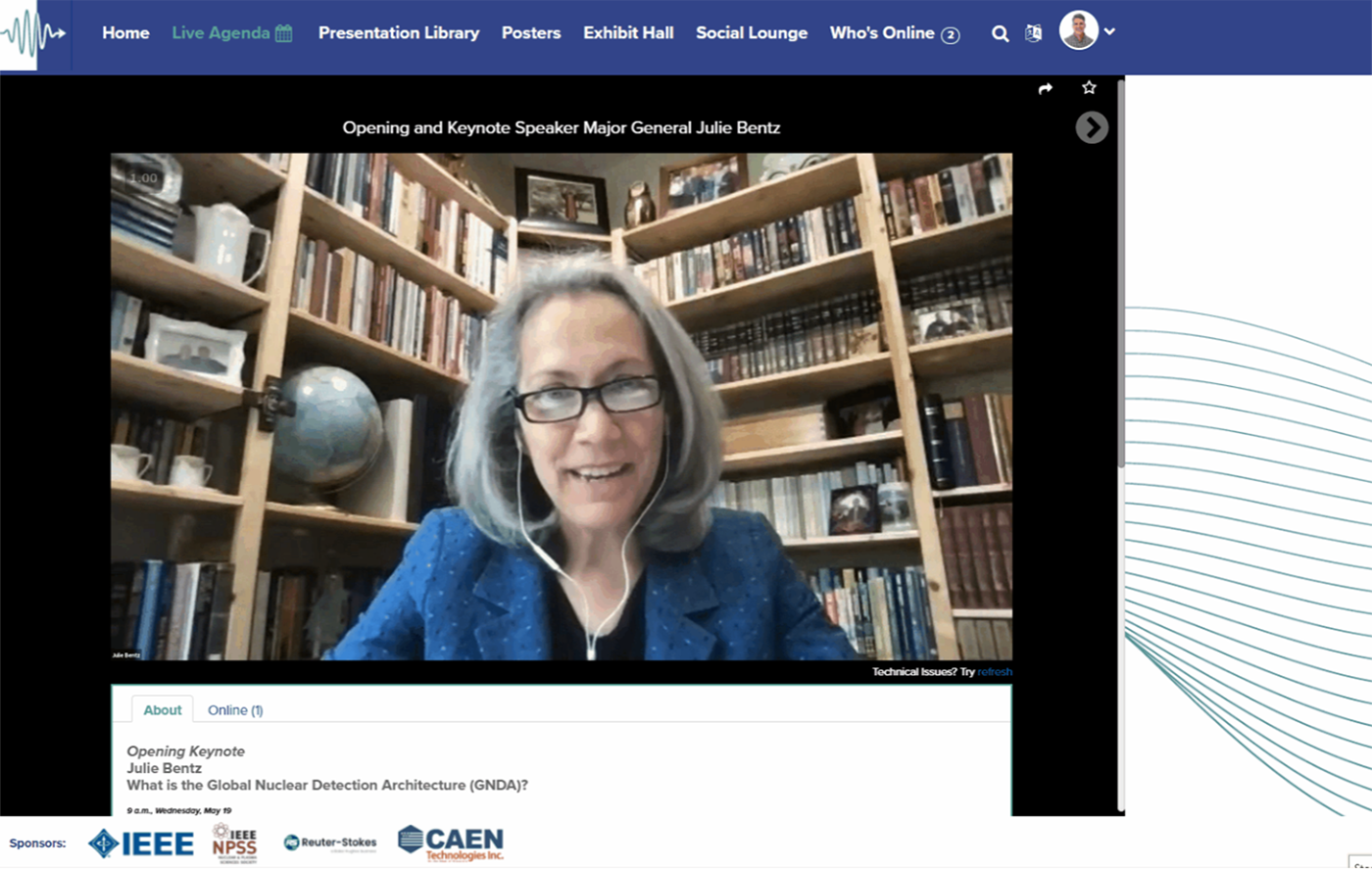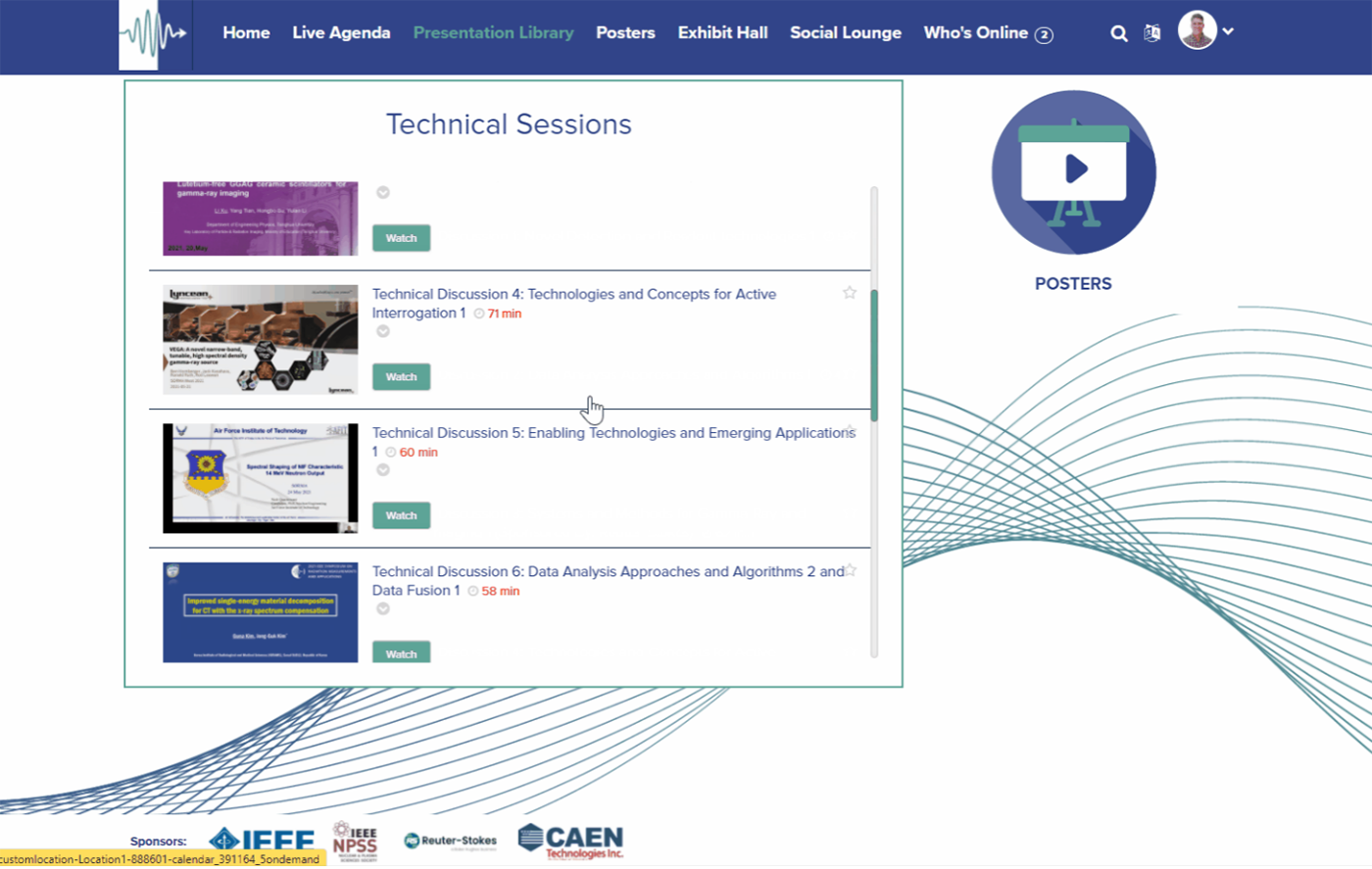
Filed in: Virtual & Hybrid Event Case Studies Tag: Case Studies
Technologies that detect radiation are essential to our health and safety. The 2021 IEEE Symposium on Radiation Measurements and Applications conference (IEEE SORMA West) convened virtually from 19-28 May 2021. Sponsored by the IEEE Nuclear and Plasma Sciences Society, the conference aimed to showcase innovations in radiation detection to stimulate discussion, explore relevant applications, and promote interaction between members of the radiation detection community.
To plan and produce their event, the organizing committee, chaired by John Valentine, collaborated with the IEEE Meetings, Conferences & Events (MCE) Event Management Services and Digital Events teams. To keep the event lively and minimize the risk of technical glitches, the committee opted for a combination of live and simu-live content. Invited papers, posters, and special sessions were held live. Contributed oral presentations were pre-recorded with live author Q&A. The team selected the Engagez platform for its ability to support multiple content formats and exhibits.
Over 300 participants joined the event’s five plenaries, 12 technical discussion sessions, two poster sessions, two special sessions, and 12 exhibitors. Invited plenary speakers from organizations including the US DOE Office of Defense Nuclear Nonproliferation Research & Development (DNN R&D) and CERN discussed big ideas in radiation detection. Talks addressed topics like Global Nuclear Detection Architecture (GNDA) and disruptive technologies in the field. Each session was followed by an engaging moderated discussion with the speakers.
Authors shared over 60 papers during the conference as oral presentations. To enable participants to consume as many of these papers as possible, the committee made the pre-recorded video presentations available one week in advance of the event. Participants were encouraged to view the videos and could even submit questions to presenters in advance. This enabled more thoughtful and rigorous discussion after each presentation. Valentine shares, “We uniformly had strong interactive Q&A sessions. In addition, we have heard many supportive endorsements from attendees indicating they liked the ability to watch the presentations in advance.”
The event included two live virtual poster sessions featuring over 60 poster presentations. To add depth to the sessions, presenters were encouraged to upload short video overviews to accompany their presentations. These videos were made available on the platform in advance of the conference for enhanced viewing and discussion. Posters addressed topics like environmentally-friendly thermal neutron detectors and using AI analytics for radiation detection.
Paper presentations explored exciting new techniques in radiation detection and their real-world applications. Authors discussed topics like gamma-ray imaging and optimizing the orientation of radiation detectors in urban environments. Presented oral and poster papers will be featured in a special issue of IEEE Transactions on Nuclear Science (TNS).
Participants could visit a dozen exhibitors in the virtual exhibit hall, which was available every day of the conference. During these scheduled times, participants could interact live with companies like Reuter-Stokes and CAEN Technologies Inc. Exhibitors benefitted by showcasing new product innovations to the audience of international experts, academic leaders, and government agencies.
To provide opportunities for collaboration and networking, participants could join two special sessions during the conference. The first session focused on the partnership between the DoD Defense Threat Reduction Agency (DTRA) Academic Alliances and the DOE National Nuclear Security Administration (NNSA) DNN R&D University Consortia. This session featured a roundtable discussion to brainstorm ideas for engagement. Another session provided Young Professionals with opportunities to meet and network with peers.
IEEE SORMA West addressed the challenges, the advances, and the lessons learned in radiation detection. Valentine shares, “It was an incredibly successful eight days. I think our tweaks to the virtual format proved successful. Navigating what the pandemic has thrown at us was not easy, but the MCE Team did it with great patience and persistence. They were absolutely critical to the success of SORMA West 2021 and a pleasure to work with!”

